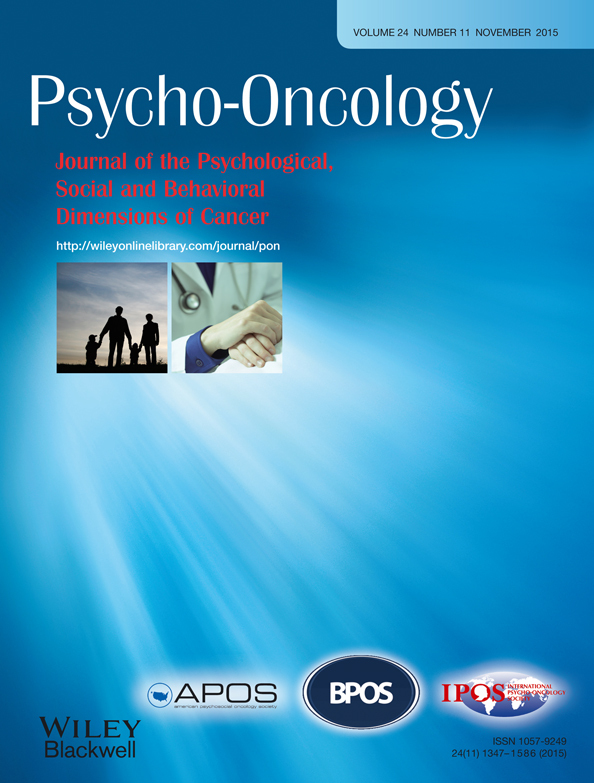A cross-sectional study of radiation oncology outpatients' concern about, preferences for, and perceived barriers to discussing anxiety and depression
Abstract
Objective
Although elevated psychological distress is commonly reported among cancer patients, our understanding of patients' preferences for, and perceived barriers to, accessing psychological support from key cancer care providers is limited. The aim of this study was to assess cancer patients' level of concern about, and willingness to discuss, their anxiety and depression.
Methods
Radiation oncology outpatients completed a touchscreen computer survey with questions assessing their concern about and willingness to discuss anxiety and depression.
Results
Among consenting respondents (n = 145), 51% (95% CI: 43%–59%) were concerned about their levels of anxiety, and 34% (95% CI: 26%–42%) about their levels of depression. If experiencing anxiety or depression, 92% (95% CI: 87%–96%) would want to discuss this with their general practitioner (GP), and 60% (95% CI: 52%–68%) with their cancer doctor. Almost half of the 58 respondents who would not want to discuss anxiety or depression with their cancer doctor indicated that this was because there were more important things to talk about during their appointment.
Conclusions
The majority of cancer patients undergoing radiotherapy would be willing to discuss anxiety and depression with their cancer doctor and GP. These findings provide additional support for service delivery models in which GPs and oncologists play key roles in initiating and coordinating discussions about cancer patients' psychosocial concerns. Copyright © 2015 John Wiley & Sons, Ltd.




